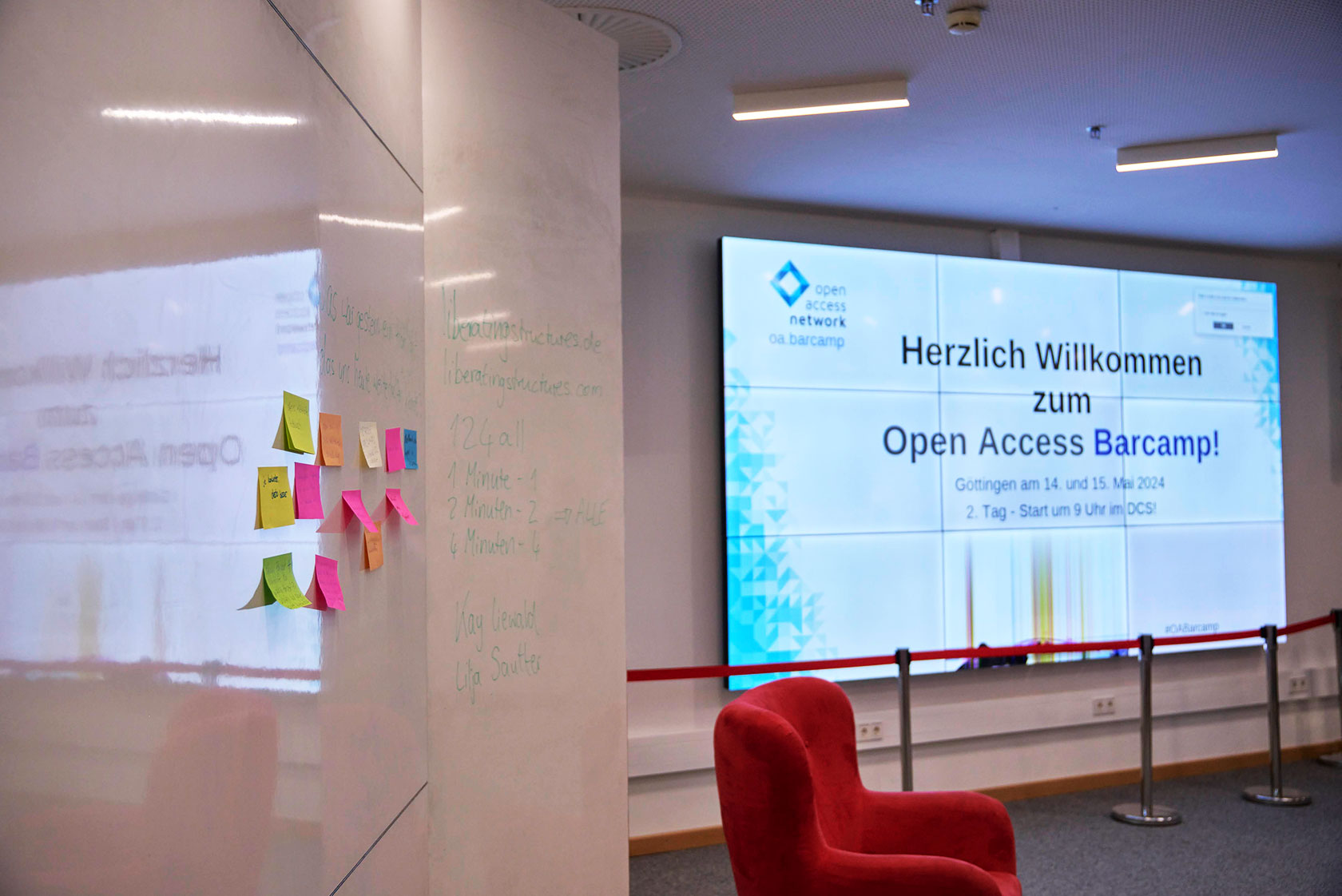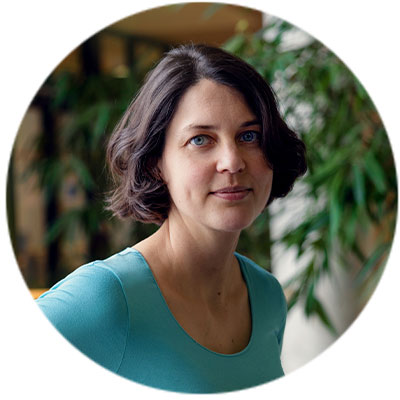
The Open Access Barcamp 2024: Community, Exchange and Reflection
How can communication with researchers about Open Access be optimised? Which new exchange formats work? And how can the barcamp itself develop further? These and other topics were discussed in an open atmosphere at the Open Access Barcamp 2024.
by Juliane Finger

From 14 to 15 May 2024, the Open Access Barcamp took place at the Göttingen State and University Library (SUB), organised as part of the project funded by the Federal Ministry of Education and Research open-access.network. The event focussed on discussing Open Access topics. What is special about the barcamp concept is that there are no fixed specialised lectures or workshops. Topics for the sessions are proposed and discussed in an open planning session at the beginning. This was also the case at the Open Access Barcamp. The participants were able to actively participate in deciding which topics should be covered. A programme with a total of 14 sessions, some of which ran in parallel, was then defined on site. During the breaks and at the networking evening, there was plenty of opportunity for informal dialogue and to deepen discussions with old and new contacts. Here are some highlights from the programme:
Better communication with researchers
The exchange on the topic of “Communication with researchers” was fascinating. A small group discussed challenges and possible solutions for improving communication between libraries and researchers. The initial situation: Researchers are often difficult to reach and not everyone is aware of the services offered by libraries, as they are still only associated with shelves full of books. The session discussed various solutions and formats that the participants use at their institutions. These included traditional communication channels such as the newsletter and new formats such as an Open Science slam. The session resulted in a list of possible action points for communicating with researchers. However, the discussion also showed that not every approach works equally well for everyone. For example, the participants reported very different levels of success in their attempts to use the social media platform LinkedIn.
Reflection on the barcamp with Liberating Structures
The second day of the Open Access Barcamp began with a refinement session. A method from agile management, Liberating Structures, was used to reflect on the barcamp. The “One Two Four All” method enables effective and inclusive group work by incorporating the opinions of all participants. The barcamp was evaluated by the participants using this method, first alone, then in groups of two, then in groups of four and finally in plenary sessions. The impressions were consistently positive. However, some attendees noted that the participants were mainly from the Open Access community and from libraries or infrastructure organisations. This tight-knit community could benefit from the perspectives of other stakeholders, such as publishers or researchers. The organisers want to take this into account for the next barcamp in 2025.
Exciting exchange in a collaborative atmosphere
The open and collaborative atmosphere at the barcamp enabled an intensive exchange and the development of new ideas and strategies for Open Access. The only point of criticism: The session duration of 90 minutes was sometimes a little long for a format that is not based on input but purely on self-directed discussion. The discussions ebbed away considerably towards the end of some sessions and were sometimes kept alive somewhat artificially by the session organisers. Overall, it was an exciting event that showed how important dialogue within the Open Access community is. I am already looking forward to next year.
This might also interest you:
- Open Access Barcamp 2023: Live and in Color
- Open access during the pandemic: prelude to a permanent change in publishing behaviour?
Dr Juliane Finger is an Open Access consultant at the ZBW – Leibniz Information Centre for Economics. She is product manager of the Open Library Economics and is leading a project of the Federal Ministry of Education and Research to set up a funding consortium for Diamant Open Access. She can also be found on ORCID.
Portrait Julia Finger: Fotograph Pepe Lange©
Photos from Danny Flemming©, Emilia Mikautsch© und Martin Liebetruth©
View Comments

Libraries in the Shareconomy: How the Opportunities are Being Exploited
There is still room for improvement: Although the shareconomy is growing steadily and...















